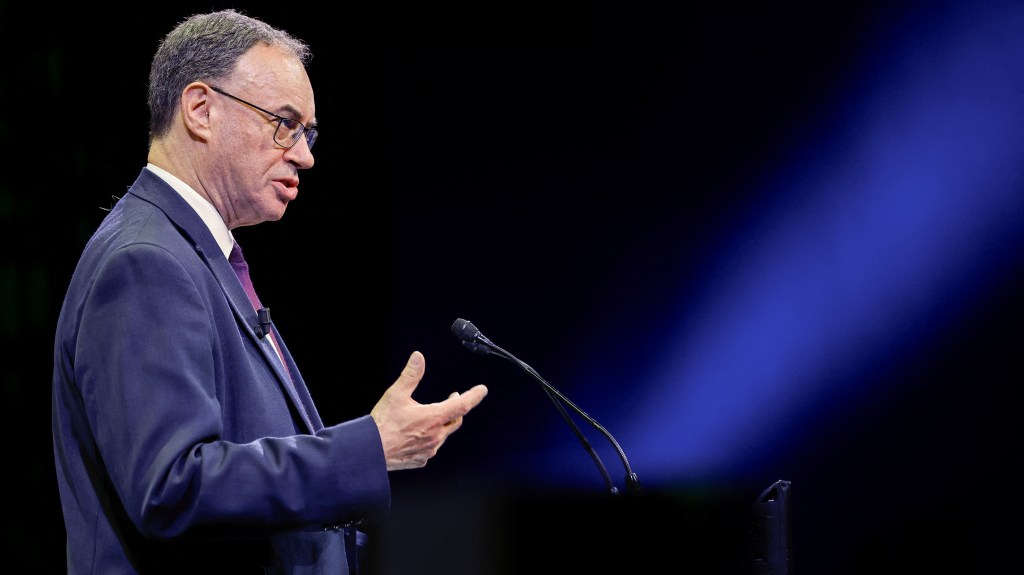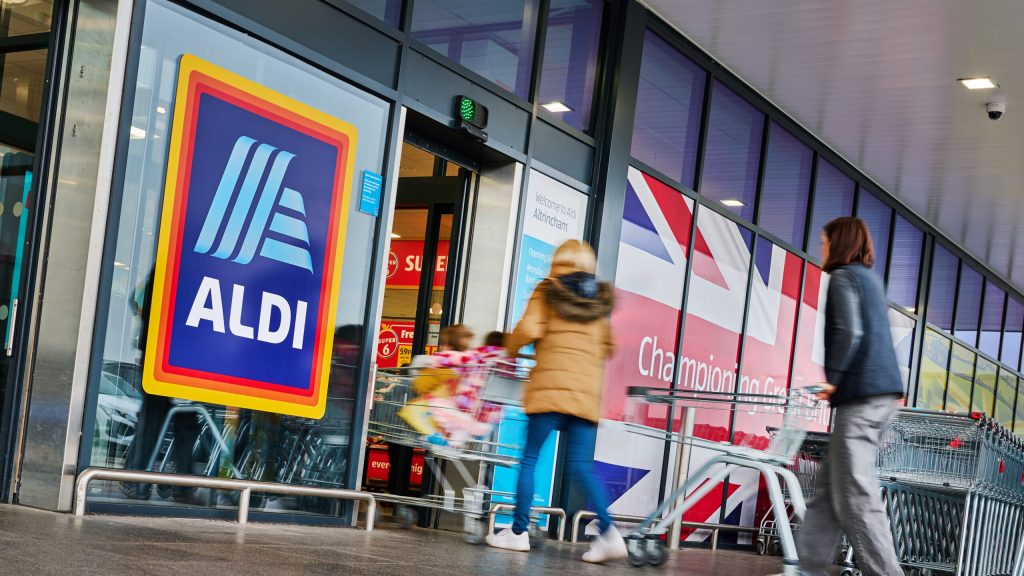Investors Withdraw Billions from Top UK Investment Funds as Confidence Wanes
Since the beginning of 2024, over £22 billion has been withdrawn from the ten most favored investment funds in the UK, marking a notable departure from once-revered fund managers such as Terry Smith and Nick Train.
As skilled stock pickers find it challenging to maintain consistent high returns, investors are increasingly turning towards cost-effective tracker funds that passively mirror market indexes.
The Fundsmith Equity fund, managed by Smith, has faced the largest net outflow, totaling £4.6 billion since January 2024, averaging about £9.4 million in withdrawals daily, based on data from analyst Morningstar.
Similarly, Train’s UK Equity fund has seen net withdrawals amounting to £1.75 billion over the same period. Assets have plummeted from a high of £6 billion in 2022 to approximately £2.3 billion currently.
During this time frame, tracker funds have received an influx of £23 billion. As of March, total investments in these funds reached £367 billion, rising from £105 billion a decade prior, and they now represent 25.4 percent of all assets under management, according to the Investment Association, an industry organization.
Costs for these funds can be as low as 0.07 percent annually, whereas actively managed funds generally charge around 0.8 percent.
Other notable actively managed funds also experiencing significant outflows include the Aberdeen (Lothian) European Trust, which is down £2.7 billion, SWP Global Investment Grade Bond, with a decline of £2.17 billion, and the Liontrust Special Situations fund, which has decreased by £2 billion.
This shift highlights growing skepticism among investors regarding the efficacy of prominent managers and a preference for the lower fees and steady performance provided by index-tracking options.
Appeal of Tracker Funds
Funds led by star managers frequently appear on investment platforms’ best-buy lists, directing investors through the myriad of available options. However, mere inclusion on these lists does not guarantee performance.
Fundsmith Equity, which charges roughly 1 percent annually, remains on Interactive Investor’s “Super 60” recommended list. It currently commands about £19.6 billion of client assets, a decrease from its peak of £26 billion in 2022, and has been downgraded by Morningstar from a “silver” to a “bronze” rating after holding a “gold” rating until March of the previous year.
This downgrade indicates that, despite the fund’s above-average fees, analysts believe it still has potential to outperform its benchmark or similar funds over a five-year timeline, though confidence in achieving exceptional returns appears diminished.
Morningstar clarified that the downgrade stemmed from a methodological adjustment rather than the fund’s performance itself, as their ratings evaluate prospective potential by considering risk factors and costs rather than historical results.
According to investment research site Trustnet, Fundsmith Equity has decreased by 3.6 percent this year, contrasted with an average gain of 2.8 percent amongst its sector. Over the past five years, it has risen by 46 percent, while the sector average stands at 62 percent. In his annual letter this January, Smith encouraged investors to adopt a “longer-term perspective.”
Smith, who reportedly earned £27.9 million in profits last year, is among an increasing number of star fund managers who have not met investor expectations. Fundsmith opted not to comment.
Train Facing Challenges
Michael Lindsell and Nick Train, founders of the Lindsell Train fund management company, collectively received £23 million in dividends last year, despite a drop in profits as investors withdrew funds following disappointing returns.
The Lindsell Train UK Equity Fund has achieved a gain of 27.9 percent over five years compared to a sector average of 54.6 percent, as per Trustnet.

Recent accounts filed at Companies House revealed that fee revenue for the business declined nearly 20 percent to £69.1 million in the year ending January. Client withdrawals reduced its assets under management to £12.8 billion from £15.9 billion the previous year.
The report indicated that these outflows were primarily in response to relative underperformance, with pre-tax profits falling 16 percent to £49.2 million. Lindsell Train did not provide a comment.
Deciding Whether to Stay or Go
Investors should be cautious about making hasty decisions regarding their investments based on a brief period of poor performance.
Jason Hollands from Evelyn Partners emphasized that Morningstar’s rating change alone should not compel investors to abandon Fundsmith Equity. He noted that despite recent challenges, Fundsmith Equity has significantly outperformed since its inception in 2010, returning 552 percent, compared to 403 percent for the MSCI World index after fees.
Fundsmith Equity generally maintains a concentrated portfolio of global stocks for the long term, with major holdings including Meta Platforms and Microsoft. Notably, 73 percent of its portfolio is allocated to American stocks, 9.5 percent to French, and 3.9 percent to UK firms.
Hollands also advised against abandoning Lindsell Train’s UK Equity fund, highlighting its “buy and hold” strategy and strong focus on consumer staples, non-bank financials, and software companies.
Laith Khalaf from investment firm AJ Bell noted that while some star managers have underperformed recently, particularly as the top stocks globally have outperformed, this could eventually lead to a rebound in active management. He emphasized that patience is vital when investing in active strategies, as they can lag behind the market for extended periods.
Exploring Alternative Investment Options
For those cautious about investing with star managers, a wealth of alternatives exists among actively managed funds.
Victoria Hasler from Hargreaves Lansdown points to the Rathbone Global Opportunities fund, which shares a global focus with Fundsmith Equity, holding 71.9 percent of its assets in US equities, 20 percent in Europe, and 7 percent in the UK. It has performed well, returning 7.7 percent over the past year, surpassing a sector average of 2.8 percent, and up 67 percent over five years, against a sector average of 62 percent.
Alex Watts at Interactive Investor recommends the £3.1 billion GQG Partners Global Equity fund, primarily investing in US tech and telecom companies such as AT&T and Netflix, which together represent around 63 percent of the fund’s investments. While it has underperformed the sector average over the past year (gaining 4.6 percent versus 9.1 percent), it has significantly outstripped over three years, increasing by 49.8 percent compared to a sector average of 26.6 percent.
Watts also supports the £3 billion Royal London Sustainable Leaders fund, which focuses mainly on UK firms but also includes shares from Europe, North America, and emerging markets. It reported strong yearly returns of 13.6 percent and 27.2 percent over three years, exceeding sector averages of 12.8 percent and 18.4 percent respectively.
Paul Angell at AJ Bell highlights the achievements of the £3.9 billion Artemis UK Select fund, noting impressive returns of 32.9 percent and 55.8 percent over one and three years respectively, outpacing sector averages of 12.8 percent and 18.4 percent. This fund has attracted significant net inflows of approximately £1.2 billion, contrasting with the outflow trend impacting many other actively managed UK equity funds. It primarily invests in UK stocks (95 percent) including Standard Chartered and Rolls Royce.
Have you reevaluated your commitment to active investment funds? Share your insights in the comments.




Post Comment